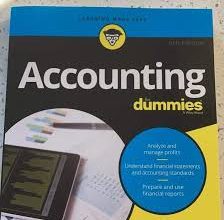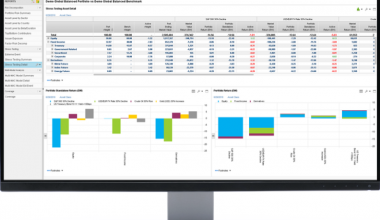“How much is Quant salary?” is oftentimes the first question anyone who aspires to become a Quantitative analyst asks before proceeding to school. This is probably due to the demanding nature of the job.
As financial stocks become increasingly complex, the demand has grown steadily for professionals who not only understand the complex mathematical models that determine the price of these stocks but are able to improve them to generate profits and reduce risks. These individuals are known as quants analysts.
In this article, we will learn about quants salary do, where they work, how much they earn, what skills are in demand. Before we give you some quant salary lists and numbers, let’s understand what the word “quant” really means.
What is a Quant?
According to Wikipedia, a quantitative analyst of the financial world is someone who specializes in applying mathematical and statistical methods – such as numerical or quantitative techniques – to financial and risk management problems.
For simplicity, Quant sits at the intersection of three areas, finance, math, and computer programming. Quants are highly sought after in the trading world because they have a solid financial background to identify a problem statement, such as the risk of an investment, develop a mathematical model to solve it, and then develop a computer algorithm for it. execute. automatically.
In fact, algorithmic trading has led to an increase in demand for Quants, with large financial firms employing more Quant than the same brokers. No wonder companies are lining up and handing out such high wages.
Depending on your skills and interests, you have a plethora of options in the Quant area. Let’s move on to the part we’ve all been waiting for.
Are Quants on High Demand?
Because of their expertise in developing important insights meant to offer their employers an edge, quants are in especially high demand in the worlds of investing and securities trading.
Is Being a Quant Stressful?
Yes, starting salaries in quant fund roles are really high… yet there are drawbacks as well. One of the main drawbacks is the long hours and high stress level, which might average 60-70 per week (or more) depending on the state of the market.
What do Quants Analysts do?
Quants analysts design and implement complex models that allow financial companies to list and trade stocks. They are used primarily by investment banks and hedge funds, but sometimes also by commercial banks. Insurance companies and management consulting firms use Quants as well as providers of financial information and software.
Quants that work directly with merchants, providing them with pricing or negotiation tools, are often referred to as “customer service” quants.
In the back office, quants, conduct research and create new business strategies. For banks and insurance companies, the work focuses more on risk management than business strategies. Reception positions are generally more stressful and demanding, but they are better paid.
Is Quant the Future of Finance?
The financial industry will increasingly rely on technological innovations and quantitative experts. The significance of computers, particularly in trading, has expanded outside the office. It’s common knowledge that Goldman Sachs notoriously eliminated 600 jobs by switching to computerized trading systems over the course of two decades ago.
How to Become a Quant
An aspiring quant must have at least a bachelor’s degree in finance, math, and computer programming. In addition, quants should have the following skills and experience:
#1. Required Skills
Quants require extensive math knowledge, specialization, programming, negotiation experience, and other skills to be truly great on the job. Below are skills that you require to become a quant.
#2. Innovative mindset
Established models are good, but how many look heavily to competition and algorithms in an attempt to improve them. Someone who aspires to be quant must be imaginative, inventive, and be able to make choices that seem odd at the moment, but which end up paying off.
#3. Programming
You have to know how to program to be successful. Additionally, they should be familiar with research applications, data mining, and algorithmic trading. Quanta must know how all systems work and must be able to create them themselves.
Among the programming languages most used by quanta are Python, Java, C ++ and Perl and tools such as MATLAB.
#4. Analysis of the numbers
Quants, of course, must be excellent at quantitative and arithmetic analysis. Analyzing data, verifying results and applying market plans require a good understanding of mathematical principles. Quantum trading happens at the speed of light and you have to deal with numbers as fast as machines. Even very small mistakes can cost a business real dollars.
#5. Take risks
While predictive modeling and algorithmic trading minimize market risk, they do not eliminate market risk. If the auto trading software is configured to make only safe choices, future returns may be reduced. Risk takers tend to reap greater rewards.
#6. Business concepts
How many strong will create their own trading strategies and techniques from scratch. Using existing models is good, but when someone is looking to be recruited as a quantist, they need to show some creative initiative. Understanding the principles of trading is an important aspect of being able to develop your own strategy.
Work as a Quant
As a career, quantitative analysts can be financially profitable and intellectually engaging. A quantitative analyst is an extremely competitive field; applicants should demonstrate experience in risk management, financial research, structured investments and option pricing.
Some of the potential avenues that quantitative analysts can focus on are algorithmic trading, risk management, front office quantity, and quantitative library analysis. Quants are taken care of by insurance agencies, hedge funds, investment banks, investment institutions, trading companies, management consulting firms, brokerage firms and accounting firms.
Quantitative analysts can start in entry-level positions as research analysts after graduating with quantitative technical skills, such as statistics, finance, or economics. However, these jobs do not necessarily lead to long-term, lifelong jobs in the industry.
Quantitative analysts are employed for their experience in advanced quantitative modeling methods and their qualifications in the financial industry, which require several years of preparation. As a result, most quants enter the profession after obtaining a master’s or doctorate degree.
The demand for quantitative analysts has been fueled by the rapid computerization of financial processes and the launch of compound bonds. The growing popularity of data analytics and machine learning opens up new possibilities for those interested in working as a quant.
Can Quant Fail?
Due to their heavy reliance on the past, quant funds are vulnerable to market fluctuations. Although a top-notch quant team will always be working to improve their forecasting models, it is still impossible to anticipate every probable outcome with 100% accuracy.
Areas of Importance
To be a stronger quant, the areas we need to focus on are:
#1. Scenario analysis
The scenario analysis is carried out by considering the different possibilities that can influence a business situation. The possibilities cover a variety of macroeconomic variables that can influence trading conditions. A quant will then assess the market based on the effect of such a change in variables on the business or firm to help plan an investment strategy.
#2. Future oriented trading
Quanta must predict potential market dynamics based on several factors. Current positions can only produce interesting results if the potential results are predicted accurately. Using machine learning models, these predictions can be properly evaluated. Regression analysis facilitates data collection, preprocessing, model preparation, and calibration.
#3. Alternative data
Alternative datasets essentially provide information about potential customers. Critical material, which helps to finalize the investment, is published/distributed by a company or by vehicles outside the company. The amount can guide your investment choices on market conditions.
#4. Geopolitical factors
Geopolitical factors, such as the Hong Kong National Security Law, make financial markets more vulnerable. Many companies are preparing to move their headquarters outside of Hong Kong to protect their interests. As a result, adverse factors can significantly impact stock market positions and, therefore, on those who may be aware of such eventualities.
How Many Hours do Quants Work?
Quants put in an average of 9-10 hours a day, or 60 hours a week. In spite of this, a career in quant trading can pay off handsomely. It’s not uncommon for a quant trader to earn a six-figure salary. Moreover, successful quant traders might earn large bonuses for their efforts.
On average, quants work for 60 hours a week or about 9 to 10 hours a day. Though, a career in the quant trading field is highly rewarding. A quant trader can expect lucrative salaries ranging from $125K to $500K. Additionally, there are attractive bonuses for well-doing quant traders
What is Quant Salary in the United States?
In the United States, the average annual salary for a quantitative trader is $170,000. Pay starts at $136,300 and goes up to $223,400. A typical hourly wage for a quantitative trader is $100. Hourly pay might be anything between $80.20 and $131.40. Location, years of service, employer, level of education, and industry experience are only some of the variables that affect salary and wage levels.
A new analyst’s place in this range depends on their location, employer, skills, and experience. The growth potential of this career is huge in terms of income. Top Wall Street quantitative analysts earn several hundred thousand dollars a year.
The job outlook for quant analysts is good. The US Bureau of Labor Statistics (BLS) is consolidating quantitative analysis under the broader umbrella of financial analysis, an area that is expected to grow by at least 6% between by 2028.
Seeking a related discipline? Check out Equity Analyst: Overview, Salary, Job, and all You Should Know.
The table below shows the compiled list of the average Quant salary in various countries.
| Country | Average Quant Salary |
|---|---|
| US | $170,000 |
| India | Rs. 1,036,12 |
| UK | £63,029 |
| Canada | C$76,768 |
| Singapore | S$94,817 |
| Hong Kong | HK$636,632 |
| Australia | AU$105,851 |
Conclusion
Becoming a quant requires advanced finance, math, and computer programming skills. High salaries and very high bonuses attract many applicants, so getting your first job can be challenging. In addition, continued success requires constant innovation, a high risk tolerance, and long working hours.
People who aspire to become Quant oftentimes consider FINANCIAL ANALYST or Banking and Finance an alternative discipline.
Related Articles
- Business Forecasting Definition, Methods, Examples, Types (Updated)
- FORECASTING METHODS: Definitive Guide to Forecasting
- MUTUAL FUNDS UPDATED: 15+ Best Mutual Funds in 2022 (+ Detailed Beginners’ Guide)






